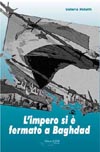January 20, 2009
Nazareth.
In the last days before Israel imposed a unilateral ceasefire in Gaza to avoid embarrassing the incoming Obama administration, it upped its assault, driving troops deeper into Gaza City, intensifying its artillery bombardment and creating thousands more displaced people.
Israel’s military strategy in Gaza, even in what its officials were calling the "final act", followed a blueprint laid down during the Lebanon war more than two years ago.
Then, Israel destroyed much of Lebanon’s infrastructure in a month of intensive air strikes. Even in the war’s last few hours, as a ceasefire was being finalised, Israel fired more than a million cluster bombs over south Lebanon, apparently in the hope that the area could be made as uninhabitable as possible.
Similarly, Israel’s destruction of Gaza continued with unrelenting vigour to the very last moment, even though according to reports in the Israeli media the air force exhausted what it called its "bank of Hamas targets" in the first few days of fighting.
The military sidestepped the problem by widening its definition of Hamas-affiliated buildings. Or as one senior official explained: "There are many aspects of Hamas, and we are trying to hit the whole spectrum because everything is connected and everything supports terrorism against Israel."
That included mosques, universities, most government buildings, the courts, 25 schools, 20 ambulances and several hospitals, as well as bridges, roads, 10 electricity generating stations, sewage lines, and 1,500 factories, workshops and shops.
Palestinian Authority officials in Ramallah estimate the damage so far at $1.9 billion, pointing out that at least 21,000 residential apartment buildings need repairing or rebuilding, forcing 100,000 Palestinians into refugeedom once again. In addition, 80 per cent of all agricultural infrastructure and crops were destroyed. The PA has described its estimate as "conservative".
None of this will be regretted by Israel. In fact the general devastation, far from being unfortunate collateral damage, has been the offensive’s unstated goal. Israel has sought the political, as well as military, emasculation of Hamas through the widespread destruction of Gaza’s infrastructure and economy.
This is known as the "Dahiya Doctrine", named after a suburb of Beirut that was almost levelled during Israel’s attack on Lebanon in summer 2006. The doctrine was encapsulated in a phrase used by Dan Halutz, Israel’s chief of staff, at the time. He said Lebanon’s bombardment would "turn back the clock 20 years".
The commanding officer in Israel’s south, Yoav Galant, echoed those sentiments on the Gaza offensive’s first day: the aim, he said, was to "send Gaza decades into the past".
Beyond these soundbites, Gadi Eisenkot, the head of Israel’s northern command, clarified in October the practical aspects of the strategy: "What happened in the Dahiya quarter of Beirut in 2006 will happen in every village from which Israel is fired on. We will apply disproportionate force on it and cause great damage and destruction there. From our standpoint, these are not civilian villages, they are military bases. This is not a recommendation. This is a plan."
In the interview, Gen Eisenkot was discussing the next round of hostilities with Hizbollah. However, the doctrine was intended for use in Gaza, too.
Gabriel Siboni, a colonel in the reserves, set out the new "security concept" in an article published by Tel Aviv University’s Institute of National Security Studies two months before the assault on Gaza. Conventional military strategies for waging war against states and armies, he wrote, could not defeat sub-national resistance movements, such as Hizbollah and Hamas, that have deep roots in the local population.
The goal instead was to use "disproportionate force", thereby "inflicting damage and meting out punishment to an extent that will demand long and expensive reconstruction processes".
Col Siboni identified the chief target of Israel’s rampages as "decision makers and the power elite", including "economic interests and the centres of civilian power that support the [enemy] organisation".
The best Israel could hope for against Hamas and Hizbollah, Col Siboni conceded, was a ceasefire on improved terms for Israel and delaying the next confrontation by leaving "the enemy floundering in expensive, long-term processes of reconstruction".
In the case of Gaza’s lengthy reconstruction, however, Israel says it hopes not to repeat the mistakes of Lebanon. Then, Hizbollah, aided by Iranian funds, further bolstered its reputation among the local population by quickly moving to finance the rebuilding of Lebanese homes destroyed by Israel.
According to the Israeli media, the foreign ministry has already assembled a task force for "the day after" to ensure neither Hamas nor Iran take the credit for Gaza’s reconstruction.
Israel wants all aid to be be channelled either through the Palestinian Authority or international bodies. Sealing off Gaza, by preventing smuggling through tunnels under the border with Egypt, is an integral part of this strategy.
Much to Israel’s satisfaction, the rebuilding of Gaza is likely to be even slower than might have been expected.
Diplomats point out that, even if western aid flows to the Palestinian Authority, it will make little effect if Israel maintains the blockade, curbing imports of steel, cement and money.
And international donors are already reported to be tired of funding building projects in Gaza only to see them destroyed by Israel a short time later.
With more than a hint of exasperation, Norway’s foreign minister, Jonas Gahr Stoere, summed up the general view of donors last week: "Shall we give once more for the construction of something which is being destroyed, re-constructed and destroyed?"
Jonathan Cook is a writer and journalist based in Nazareth, Israel. His latest books are "Israel and the Clash of Civilisations: Iraq, Iran and the Plan to Remake the Middle East" (Pluto Press) and "Disappearing Palestine: Israel's Experiments in Human Despair" (Zed Books). His website is www.jkcook.net.
A version of this article originally appeared in The National (www.thenational.ae), published in Abu Dhabi.
|
















